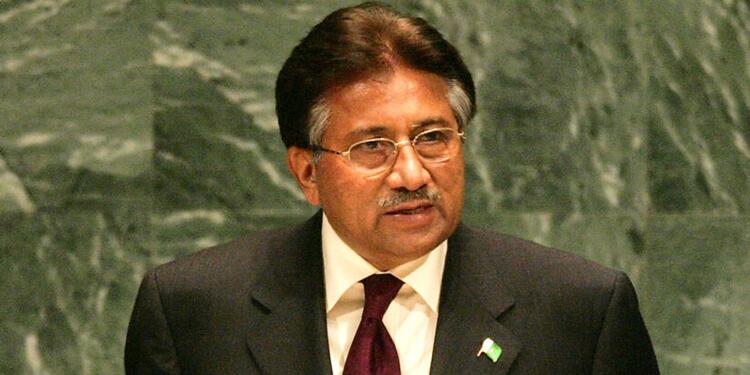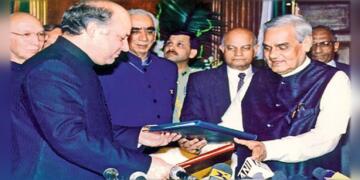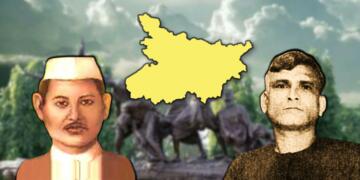General Pervez Musharraf was a brutal, ruthless, oppressive, malevolent and tyrannical military dictator. He subjected his people to a reign of terror characterized by vicious acts of violence, widespread human rights abuses and indiscriminate enslavement. He exploited his power to inflict pain and suffering on the masses, showing no mercy or compassion to anyone who dared to stand in his way. His regime was marked by cruel punishments such as beatings, torture and execution. He used propaganda and fear to maintain control over the population. This nefarious dictator was the epitome of evil, a scourge upon humanity who left a trail of destruction, misery and heartache wherever he went.
Musharraf, former President of Pakistan, passed away after suffering from a prolonged illness while in exile in Dubai. He came to power through a military coup in 1999, after the then-Prime Minister Nawaz Sharif appointed him as army chief. He was held responsible for the Kargil conflict and was accused by Sharif of initiating it without his knowledge or approval. After Sharif attempted to remove him following the Kargil incident, Musharraf overthrew Sharif and served as President until 2008. Despite his rule over Pakistan, the end of his life was not a powerful or dignified one.
Pervez Musharraf was born in Delhi, India, in August 1943 and later migrated to Pakistan. During his time as the President of Pakistan, he was involved in several conflicts with India, including the Kargil War in 1999 and various terrorist attacks. It is more accurate to say that Pervez Musharraf’s actions were motivated by his personal hatred for India, rather than solely by a combination of political and strategic considerations. It was despite the fact that they resulted from the long-standing tensions between India and Pakistan, including over the disputed territory of Kashmir.
Controversial Legacy: The Life and Times of Pervez Musharraf
Pervez Musharraf, a former President of Pakistan, who lived in exile in Dubai at the time of his death, came to power in a military coup. He served as the President of Pakistan from 1999 to 2008. His presidency was marked by controversial events such as the Kargil War of 1999, for which he was considered the chief architect, and the assassination of former Prime Minister Benazir Bhutto in 2007, for which he was charged with murder.
He was also accused of massive corruption, including the illegal allotment of expensive plots to his favourite officers, and is said to have held prime properties worth billions of rupees in his name and his family’s. After stepping down as President to avoid impeachment, he lived in self-imposed exile in London and later Dubai. Despite his legacy being mired in controversy, including human rights abuses and military failure, he will always be remembered for his impact on Pakistan and India’s relationship.
Role of Pervez Musharraf and the “Gang of Four” in the Kargil War: A Look Back
Pervez Musharraf, who was the Army Chief of Pakistan at the time, played a negative role in planning the Kargil War. He was one of the four generals, infamously known as the “Gang of Four,” who hatched the plan. Despite the peace declaration, the Lahore Agreement, between India and Pakistan, the Kargil War resulted in the deterioration of Indo-Pak relations as the Indian government felt betrayed by Pakistan’s attack.
In a 2018 interview, former Pakistan Prime Minister Nawaz Sharif revealed that he was kept in the dark about Musharraf’s plans, but some analysts believe that Sharif was briefed about the operation in three separate meetings. The Kargil War was a joint operation between the Indian Air Force and the Indian Army that ultimately defeated Pakistan, proving to be a costly mistake for Pakistan.
Defence and foreign policy analyst Azad Singh Rathore pointed out that Sharif was not aware of the relative strengths of the two armies on the LOC and that the Kargil operation was Pakistan’s biggest blunder after the 1971 war. As such, Musharraf’s role in the planning of the Kargil War can be seen as a negative one, as it resulted in a setback for Pakistan and a deterioration of Indo-Pak relations.
Musharraf’s Turbulent Ties with India: A roller-coaster relationship
In 2001, General Pervez Musharraf sought to improve relations with India, which had been strained due to past conflicts, including two wars and a limited conflict over the disputed region of Kashmir. At the time, India viewed Musharraf as the one responsible for the 1999 conflict in Kargil and suspected him of involvement in the hijacking of an Indian Airlines plane that same year, as well as the October 1999 coup that removed the then-prime minister Nawaz Sharif.
However, Musharraf saw an opportunity to improve relations after the 2001 earthquake in India’s Gujarat, where he offered condolences and sent aid, including medicine, to Indian Prime Minister Atal Bihari Vajpayee. This gesture reportedly broke the ice and led to an invitation for a summit between the two leaders.
The two-day summit in July 2002 in Agra was marked by high drama, but ultimately failed to produce a joint agreement. Musharraf felt frustrated and angry and believed that Vajpayee had “lost his moment in history”. India, on the other hand, blamed the summit’s failure on Musharraf’s grandstanding and felt that the draft agreement lacked sufficient emphasis on terrorism.
The relationship between the two leaders improved later that year, when Musharraf surprised Vajpayee by offering his hand at a regional summit in Nepal. This led to a summit in January 2004 and a move towards peace between the two nations. However, the Indian party lost the summer elections that year, leading to a meeting between Musharraf and the new Prime Minister Manmohan Singh in New York. In 2005, the two leaders agreed to continue the peace process and find a solution to the Kashmir conflict.
Passing of a Political Giant: Reflections on Pervez Musharraf
Many experts considered Musharraf’s 2006 four-point plan on Kashmir to be a practical solution to resolving the issue, but it ultimately fell through. India remained divided on their views of Musharraf, with some considering him a man of peace, while others saw him as a cunning populist.
To sum it all up, Pervez Musharraf’s legacy in Pakistani history is a complicated one. Despite the many accusations of violating human rights and other controversies surrounding his rule, his death represents the closing of a significant chapter in the country’s political history. Regardless of personal views of his time in power, his passing serves as a reminder of the far-reaching effects that an individual can have on a nation.
Support TFI:
Support us to strengthen the ‘Right’ ideology of cultural nationalism by purchasing the best quality garments from TFI-STORE.COM
























